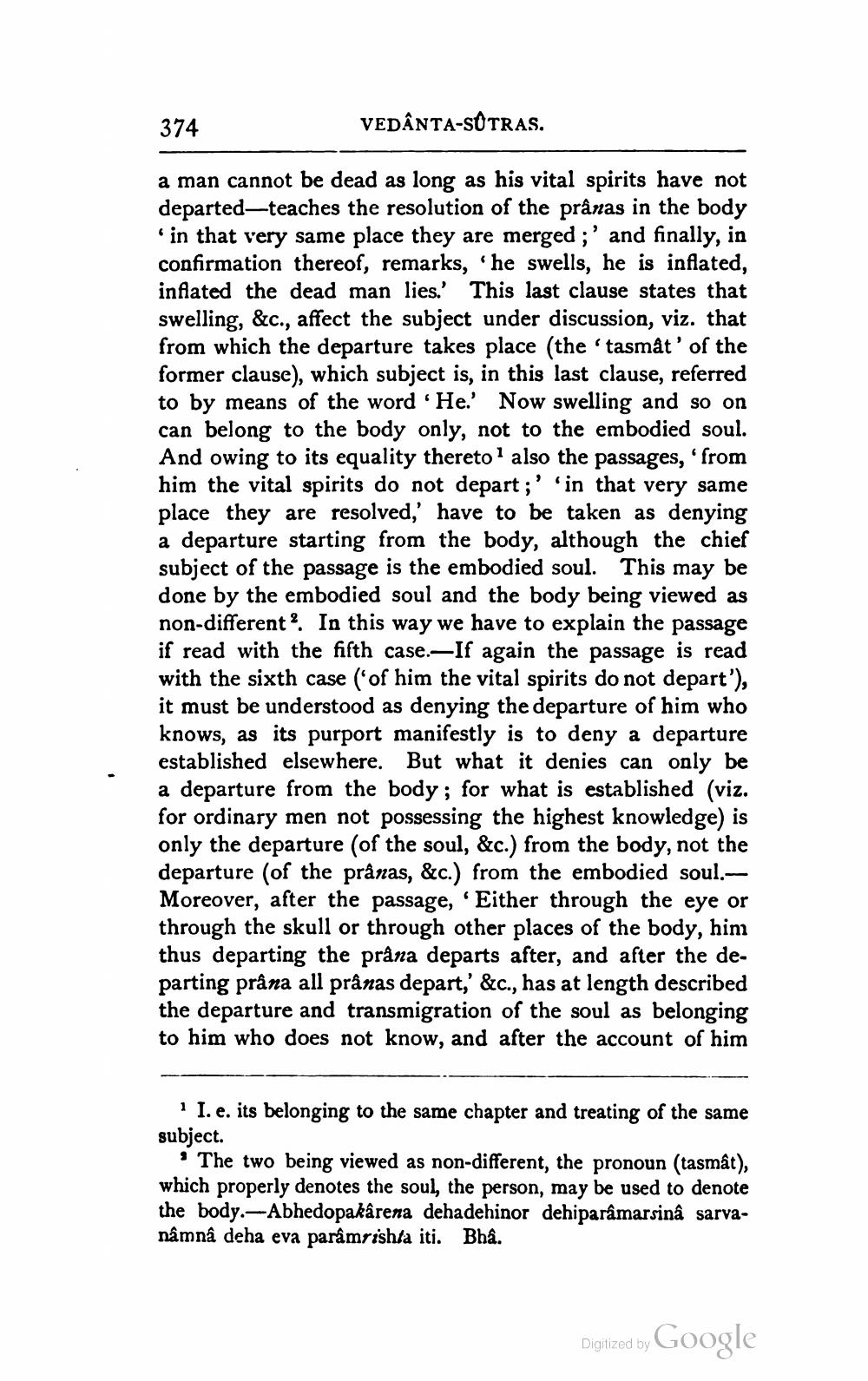________________
374
VEDANTA-SUTRAS.
a man cannot be dead as long as his vital spirits have not departed-teaches the resolution of the prânas in the body ' in that very same place they are merged;' and finally, in confirmation thereof, remarks, 'he swells, he is inflated, inflated the dead man lies.' This last clause states that swelling, &c., affect the subject under discussion, viz. that from which the departure takes place (the 'tasmât' of the former clause), which subject is, in this last clause, referred to by means of the word 'He.' Now swelling and so on can belong to the body only, not to the embodied soul. And owing to its equality thereto1 also the passages, 'from him the vital spirits do not depart;' 'in that very same place they are resolved,' have to be taken as denying a departure starting from the body, although the chief subject of the passage is the embodied soul. This may be done by the embodied soul and the body being viewed as non-different. In this way we have to explain the passage if read with the fifth case.-If again the passage is read with the sixth case ('of him the vital spirits do not depart'), it must be understood as denying the departure of him who knows, as its purport manifestly is to deny a departure established elsewhere. But what it denies can only be a departure from the body; for what is established (viz. for ordinary men not possessing the highest knowledge) is only the departure (of the soul, &c.) from the body, not the departure (of the prânas, &c.) from the embodied soul.Moreover, after the passage, 'Either through the eye or through the skull or through other places of the body, him thus departing the prâna departs after, and after the departing prâna all prânas depart,' &c., has at length described the departure and transmigration of the soul as belonging to him who does not know, and after the account of him
1 I. e. its belonging to the same chapter and treating of the same subject.
The two being viewed as non-different, the pronoun (tasmât), which properly denotes the soul, the person, may be used to denote the body.-Abhedopakârena dehadehinor dehiparâmarsinâ sarvanâmnâ deha eva parâmrishta iti. Bhâ.
Digitized by Google




